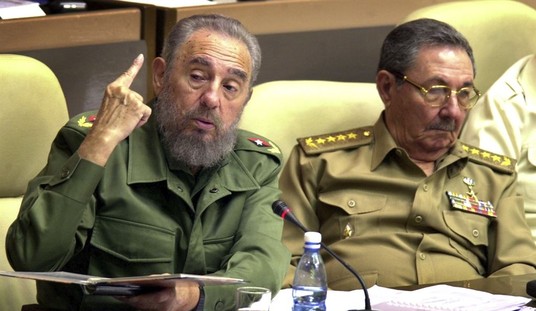Venezuelan strongman Hugo Chavez has again frustrated the world’s attempt to derail Iran’s nuclear weapons program. Evidence now clearly shows that he’s been sending gasoline to Iran in defiance of U.S. sanctions that sought to deprive the regime of that commodity and bring them back to the negotiation table.
On July 1, 2010, President Barack Obama signed the Comprehensive Iran Sanctions, Accountability, and Divestment Act of 2010 (CISADA). The act was a consequence of Iran’s continued defiance in the face of international pressure to halt its uranium enrichment activities and return to the negotiating table over its controversial nuclear program. One of the key components of CISADA was to penalize companies who export gasoline or provide Iran with capabilities to aid gasoline production.
Even though Iran is the world’s second largest oil producer, it currently does not have the capability to satisfy almost 40% of its internal gasoline demands and is, thus, dependent on imports to satisfy those needs. The passage of the CISADA was hailed as a powerful measure to exert pressure on Iran. As a matter of fact, immediately after its passage, there were signs that it had indeed created significant problems for the government of Iran and that its continued implementation would have very desirable effects.
Alas, after months of denial, we’ve now learned that one company has defied the act and has been secretly selling gasoline to Iran. That company is none other than Venezuelan government-owned petro-giant Petróleos de Venezuela, S.A. (PDVSA). Documents obtained by credible sources close to the matter clearly show that as recently as last December, Venezuela was sending reformate to Iran’s government. Reformate is used in the production of very high-grade gasoline.
Telltale signs had been around for months, but more credible reports of the deals emerged just this week about Tehran getting help from Caracas. On Wednesday, it was reported that the U.S. State Department is investigating information that Venezuela violated the sanctions that were intended to deter foreign companies from helping Iran quench its thirst for gasoline.
Radio Free Europe ran a report quoting Arturo Valenzuela, the assistant secretary of state for western hemisphere affairs, who told a congressional panel that “we are looking at that issue” and “trying to determine if in fact there is a violation.” The RFE piece spoke of documents that showed PDVSA sending two shipments of gasoline to Iran within the last few months. Those documents are linked above.
The documents clearly show that Petróleos de Venezuela, S.A., Venezuela’s government-owned petroleum company, sold at least 600,000 barrels of reformate in two shipments of 300,000 barrels each to the National Iranian Oil Company — Iran’s government-owned petroleum company — that were later shipped out of Venezuela in late December 2010.
These documents clearly debunk the lies the Venezuelan government has been telling the world about how Iran has become self-sufficient and is producing its own gasoline.
Venezuela’s top oil officials have been saying repeatedly after CISADA was passed that the country is not selling gasoline to Iran. As the ships were making their way to Iran, the country’s oil minister, Rafael Ramirez, brazenly denied that its government is involved in helping Iran overcome its gasoline deficiency. In a press conference in January, Mr. Ramirez said that the cuts in gasoline subsidies in Iran had brought down Iranian internal consumption of the product and that Iran had apparently “solved its problem.”
What he failed to mention was the role Hugo Chavez’s government was playing in solving that problem. And it hardly comes as a surprise.
Venezuela’s Chavez and Iran’s Khamenei are kindred spirits. Both have severely restricted freedom of speech and curbed political opposition in their countries. What’s surprising is the extent to which the American government has ignored the reports about Venezuela’s involvement in helping Iran break sanctions, which could result in endangering every country in the Middle East if Iran obtains nuclear weapons.
But now, in the face of this new evidence, is the U.S. government going to take tough measures against PDVSA, or is it going to simply skirt around the issue as it has for months when reports kept streaming in about Venezuela’s covert help to Iran?









Join the conversation as a VIP Member